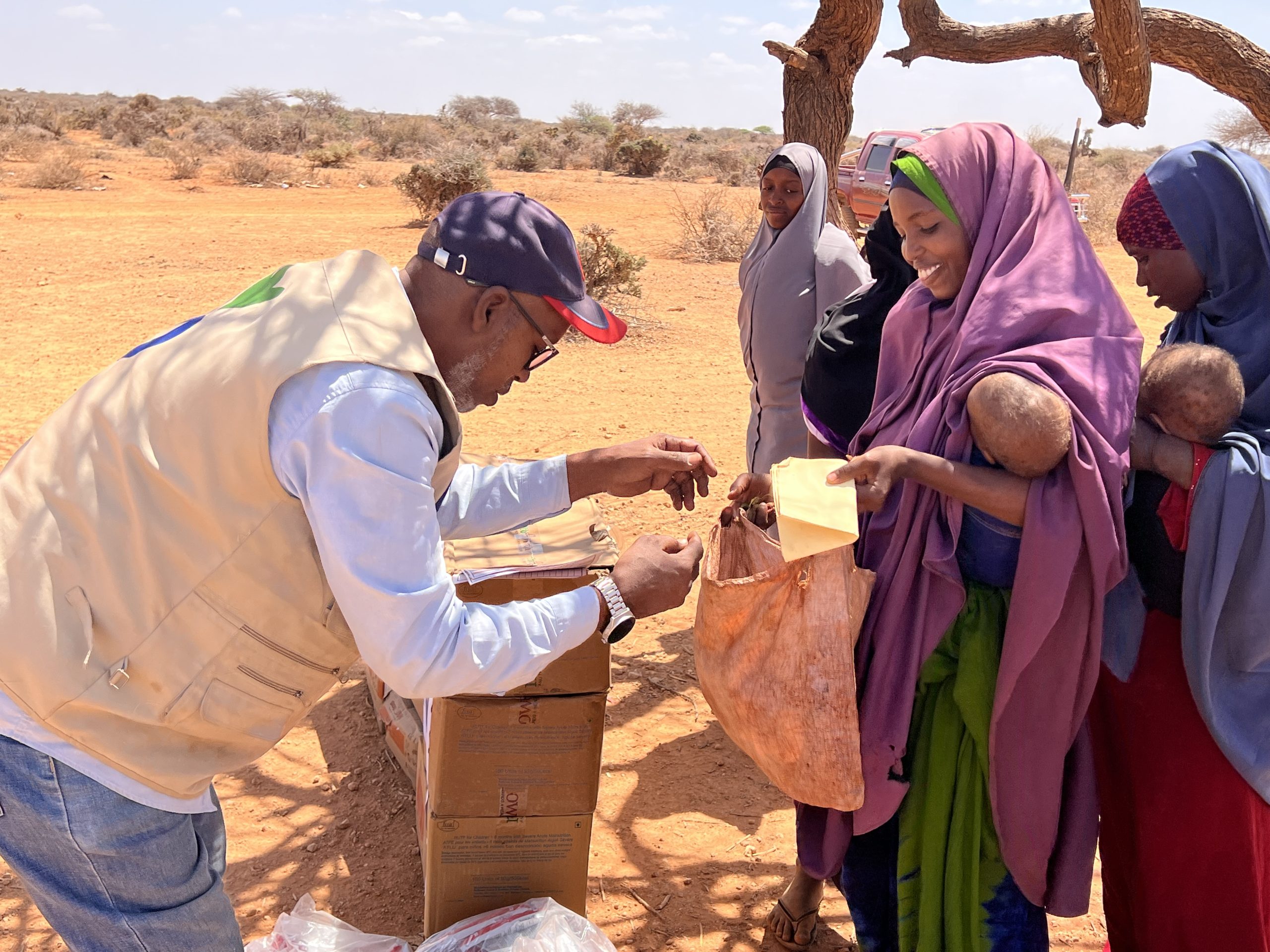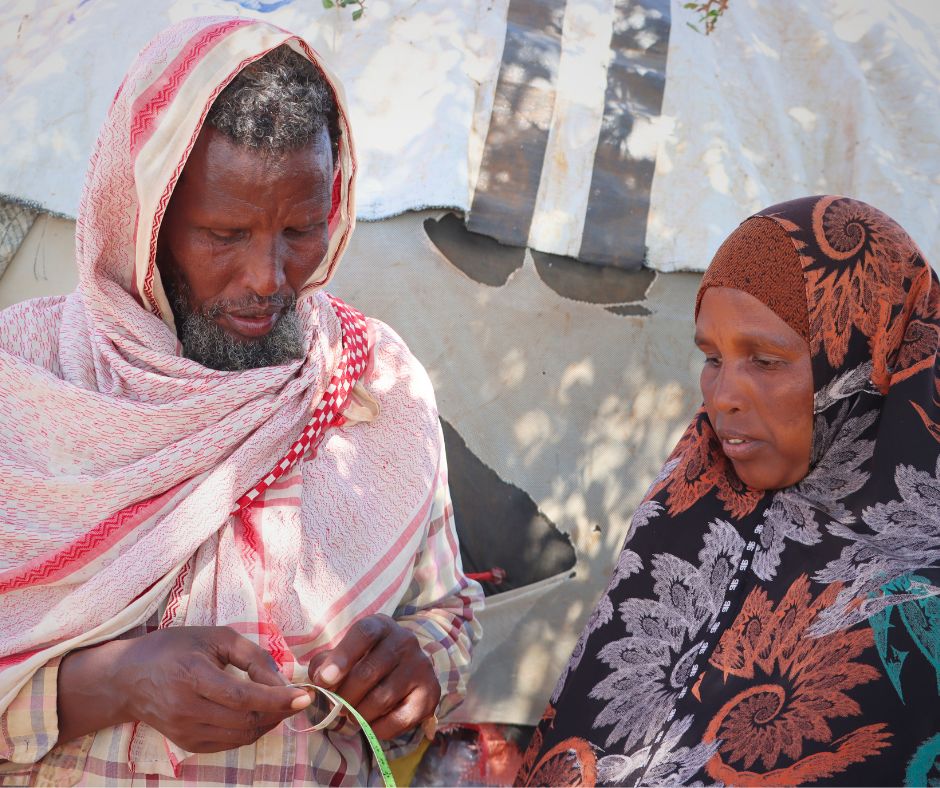In cities, we take water, food, and healthcare for granted. A clinic is nearby, food is available, and water flows from the tap.
In Somalia’s remote areas, every necessity comes at a cost—long walks, exhaustion, and uncertainty.
For families living in access-constrained areas, survival is a daily battle. During droughts, responsibilities pile up—finding food, caring for children, tending to livestock, and searching for scarce water. Every drop and every meal is a struggle.
In Bakool region, for instance, life has become even harder. A blockade has cut off communities, making it difficult to access wells or seek medical help. The most vulnerable suffer the most—women, children, and the elderly.
Mama Halima Abdi, whose name is changed for security reasons, knows this struggle too well. She walked three hours to reach a mobile health unit. Her child was weak from malnutrition, their small herd of seven goats no longer providing enough milk.
“The therapeutic food keeps my child alive,” she says. “The rest of us manage with whatever we get from our small farm, but it’s never enough. We just pray for the rains.”
Through funding from 𝐄𝐔 𝐇𝐮𝐦𝐚𝐧𝐢𝐭𝐚𝐫𝐢𝐚𝐧 𝐀𝐢𝐝, the CaafimaadPlus Consortium, and partners like Action Against Hunger , emergency health, nutrition, water, and protection services are reaching those in crisis. Mobile health units travel to safer locations, allowing families like Mama Halima’s to receive help without risking long, dangerous journeys.

Mobile health teams are more than just a service—they are a lifeline. In places where hospitals and clinics are non-existent or too far, they are often the only hope for survival. They provide critical medical care, prevent unnecessary deaths, and bring relief to communities trapped in crisis. Without them, the suffering would be immeasurable.
This is the reality for Somalia’s hardest-hit communities. But it doesn’t have to be. The time to act is now.








